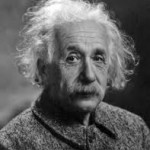The Passing of Two Innovators
Posted on October 10, 2011 by Robert Ringer
Whenever someone famous died, my dad used to say, “The Grim Reaper just keeps mowing ‘em down, one by one.” Simply put, but accurate. And this past week, the Grim Reaper was working overtime. In a harsh one-two combination, he took the lives of two living legends, Steve Jobs and Al Davis.
What was eerie about the two deaths coming so close together is that not only were both men legends, they were both famous for their contentious personalities. And, unfortunately, they died of the same rare but lethal disease, pancreatic cancer. It’s the same silent killer that took the lives of Patrick Swayze and Luciano Pavarotti, a disease that is almost impossible to detect until it reaches an advanced stage.
How well I remember Jobs taking on Bill Gates and Microsoft in the late seventies, while Al Davis was doing battle with then Commissioner Pete Rozelle and most of the National Football League. I always had the impression that both of these giants enjoyed irritating their adversaries.
On one occasion, when someone asked Bill Gates about a derogatory remark Jobs had made about Microsoft, he replied something to the effect of, “Steve Jobs should spend more time on his own business rather than on badmouthing his competitors.” Jobs, however, mellowed with age, and, in an ironic twist of fate, Microsoft ended up investing in Apple.
In Al Davis’ life, Pete Rozelle played the role of Bill Gates. Rozelle was determined to stop Davis from moving his motorcycle gang — a.k.a the Oakland Raiders — to Los Angeles. It was a long, ugly, drawn-out legal battle, but, in the end, Davis won.
Then, after playing in the decrepit Los Angeles Coliseum for fifteen years, Al Davis, the master of the bodacious surprise, picked up his marbles and moved his beloved Raiders back to Oakland. Sadly, the man whose most famous quote was “Just win baby, win” spent his remaining years desperately trying to resurrect the Raiders to greatness, but, to the delight of his detractors, continually came up short.
Perhaps that’s where the similarities between Davis and Jobs, who died just three days before Davis, end. Incredibly, while battling his illness, the latter years of Jobs’ life were by far his most productive.
After being forced out of Apple in 1985 by John Sculley, whom Jobs had hired as CEO, Jobs founded Next Computer, bought Pixar Animation Studios — which led to Toy Story, A Bug’s Life, and Finding Nemo — and made far more money than he had ever made with Apple.
But the best was yet to come. In 1997, the board of Apple enticed Jobs to return to the company, where his innovative “i” product line has since changed the way we live. At the time of his death, Jobs had already laid out plans for new Apple products for years to come.
The passing of Jobs and Davis also reminded me of a dramatic line from the classic miniseries The Thorn Birds. The movie centers around Drogheda, a large sheep station in the Australian outback, beginning in the 1920s. Drogheda is owned by an elderly and very wealthy widow named Mary Carson (played by Barbara Stanwyck).
In one particularly poignant scene, Mary is standing on the front porch of the main house at Drogheda with Father Ralph de Bricassart (Richard Chamberlain). She is hopelessly in love with the much younger priest, and, at one point, says to him something to the effect of, “You know, a hundred years from now, no one will even remember that any of us even lived here at Drogheda.”
It’s likely that the legacies of Steve Jobs and Al Davis will live far into the future, but their deaths did remind me of how many innovators, in both industry and sports, have been long forgotten. How many people know the name Willis Haviland Carrier, who invented modern air conditioning, or Paul Brown, who virtually invented the modern version of pro football?
Life is remarkably ephemeral — and legacies even more so.









